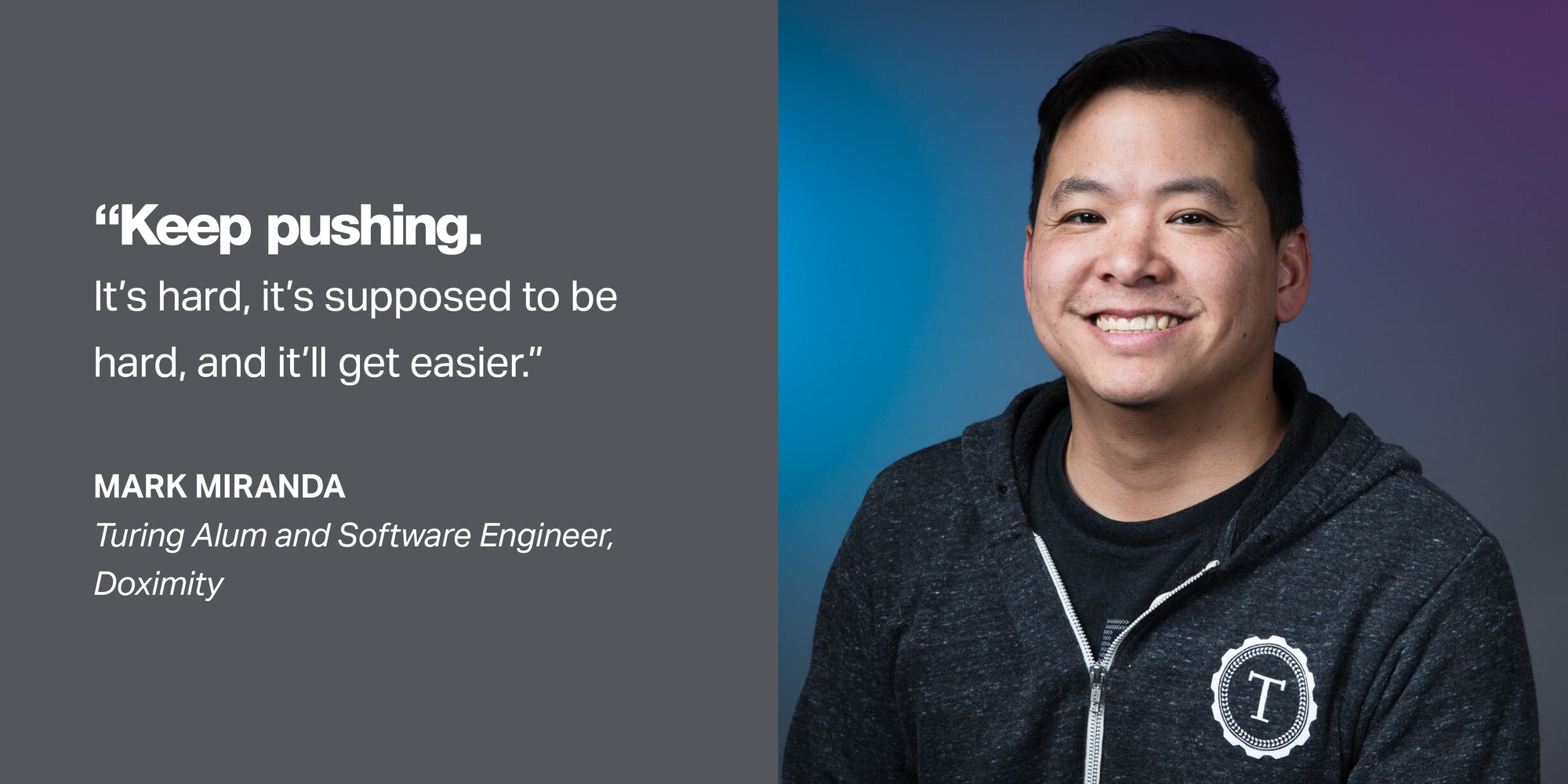From Finance to Coding
Meet Mark, a Turing alum.

Graduated August 2016
Hired November 2016
Now works as a Software Engineer at Doximity
I secretly just wanted to leave work before 6 pm. No judgment here. For Turing Alum Mark Miranda, coding was a natural progression. Having previously worked in accounting and finance roles and enduring the total time suck of being in monthly meeting cycles only to spend a ton of time in between those meetings prepping for the next set, he thought, There has to be a better way. And he found it. He discovered that you could record macros in Excel and that would generate code. After editing the generated code and learning more and more along the way, he eventually automated most of the non-meeting cycles down from three weeks to under one. After claiming countless hours of his life back, he was ready for code school.
On why he chose Turing:
“The non-profit status means they couldn't sell my education to a company that needed them to train us in a specific language or framework.”
Mark continues, “That meant that me learning as much as I could was their focus so I could get hired quickly. And—the ability to repeat a module was important in case I needed more time to hone my skills. I did not like the idea of spending a lot of money and not being able to get extra time if I needed it.” The experience was challenging, but there were always instructors at-the-ready to nudge him towards a right-er solution if his natural instincts weren’t pointing in the right direction. “It can sometimes feel overwhelming to try to complete a project or learn all the things you need to learn, but there's also a lot to be said in finding ways to understand the problem instead of just pushing harder into the wall that's blocking you.”
On how his past experience informs his current work:
“In my pre-Turing life, I had to quickly learn how to communicate financial terminology and situations to people that did not have the same background. As a developer, I still find myself needing to use the communication skills of being able to translate to non-technical speak to help people understand the things I'm working on.”
Currently a Software Engineer at Doximity, a telehealth company that is building a suite of tools to connect physicians directly with patients and use their time more efficiently, Mark finds ownership in the code he writes and the problems he solves every day. His background in finance helps when questioning the value of a specific change that his team is planning on making. How much time and money are we spending to fix a thing that may have a solution that we can throw less money at? A large part of his job is focused on improving pipeline efficiencies, which equates directly to spending less money on infrastructure. This master of efficiency is always thinking in ways that contribute back to the bottom line.
On what’s next and his mentorship of aspiring developers:
“I jokingly tell people that ‘I type for a living,’ which is technically the truth, but it's a wild idea that my earning potential is tied to how I think and solve puzzles and how fast I can type those solutions.”
No matter where the journey takes him, Mark is interested in continuing to break it down—each problem into something more doable. That’s another tool taught at Turing that proves invaluable in real-life development. “While learning code and syntax is important to being a developer, it's almost secondary to the real job of getting unstuck and breaking down problems into bite-sized problems,” he adds. “Keep pushing. It’s hard, it’s supposed to be hard, and it’ll get easier.”
This is something that Mark has tried—and been able to successfully instill—in the many lives he’s touched through mentorship. Being a mentor matters to Mark because of the impact it had on him when he was a student at Turing. “It helped bring my confidence up as well as point out blindspots. It gave me a view into what the future could look like.” Now he’s helping others experience this same thing:
“Mark was really helpful about putting things in a larger context. During Turing, it was easy to get hyper focused on the problems and tech stacks we were using, but he always reminded me that it was more about problem solving, learning, getting the job done, and then moving on.” — Graham Thompson
“I think having Mark as a mentor was amazing because, even if I had gotten through Turing without his mentorship, I wouldn’t be as polished a coder. He definitely gave me a boost of confidence.” — Jacob Martinez
“Turing would’ve been a totally different experience without a mentor like Mark. He’s very present in stand-ups and treats his mentees like a developer from day one. That had a huge impact on me getting over the imposter syndrome that comes with starting a new career.” — Aiden Mendez
“Mark is an incredible mentor because of his ability to listen and provide actionable feedback, and I'm a better developer directly because of him. I often find myself asking, ‘How would Mark think about this situation?’ in my current role because I want to support my team in similar ways!” — Marshall Houston

